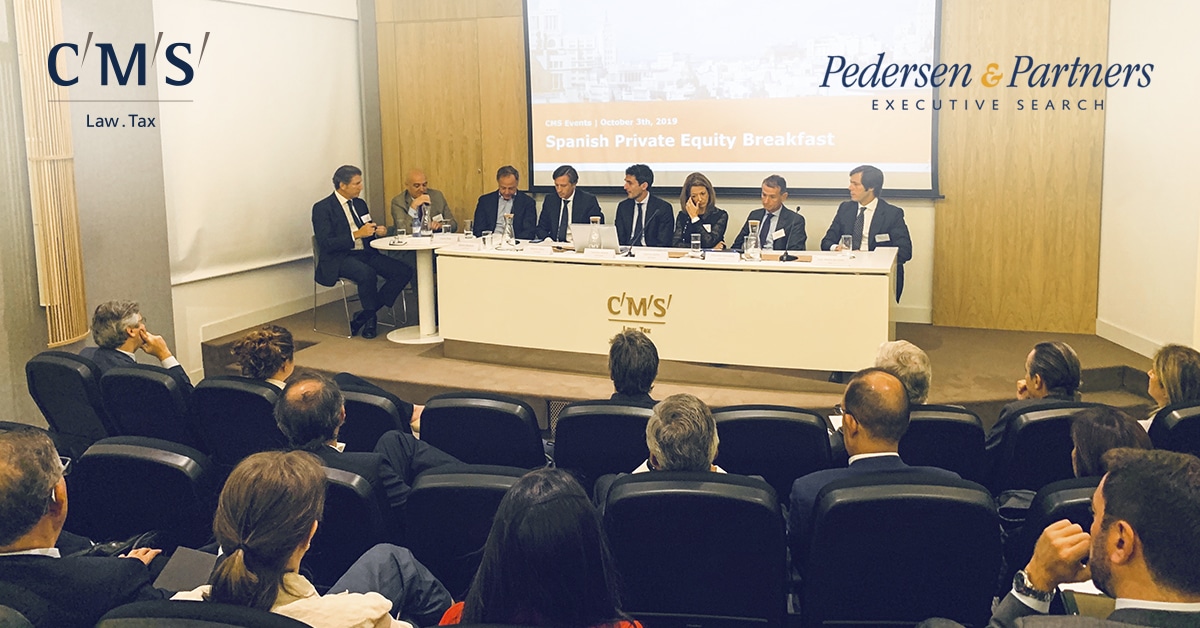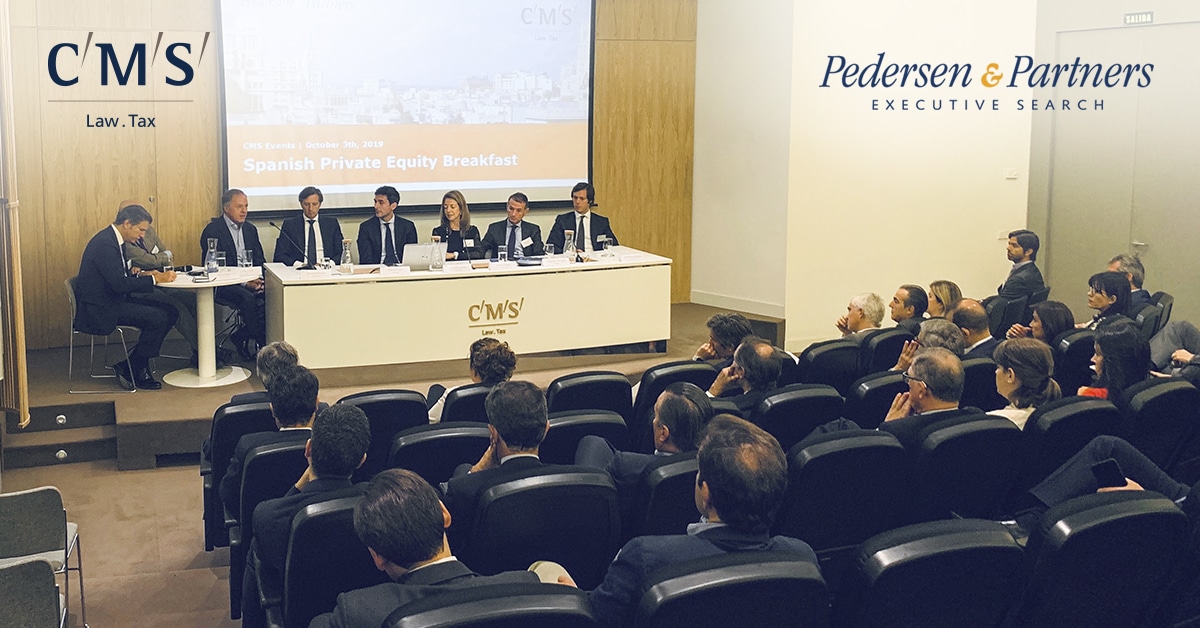In late March 2021, the Pedersen & Partners Private Equity Practice Team had the pleasure of welcoming Rudy Provoost, Founder and Managing Director of YquitY, an advisory and consultancy practice focused on the PE and VC space as well as executive mentoring and strategic counselling of family-owned and listed companies.
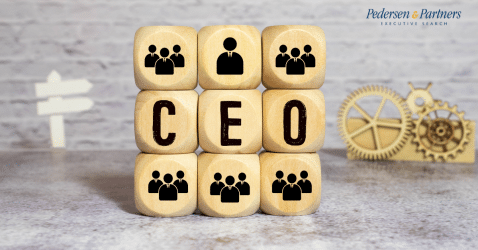
Mr. Provoost has a proven track record and extensive international experience in a variety of executive leadership positions. In his capacity as a CEO, he has led various businesses including Philips Lighting and Philips Consumer Electronics, during his tenure at Royal Philips, and Rexel, when backed by a PE consortium consisting of CD&R, Eurazeo, Bank of America Merrill Lynch and Caisse de Quebec. Mr. Provoost is currently chairman and/or member of the board of multiple companies, among which are Randstad, Elia Group, Jensen-Group, Pollet Group, and Vlerick Business School. Furthermore, he is a Senior Advisor for Cerberus Capital Management and an active investor in 9.5 Ventures, a corporate venturing fund.
The team enjoyed a lively and energising discussion, inspired by Mr. Provoost’s insights into the critical characteristics and key success factors of an effective CEO in a PE portfolio context, highlighting the importance of human capital, true entrepreneurship, and strategic fit.
We share our executive summary of the findings below, while expressing our sincere gratitude to Mr. Provoost for his valuable contribution.
Private Equity – a Human Capital Business
Consider the balance sheet as a metaphor. Once a PE firm has successfully completed the due diligence process, the final phase of underwriting and financing a deal very much focuses on the financial resources side of the target’s balance sheet. Once the acquisition is a fact, the investor’s attention quickly shifts to the assets’ side of the balance sheet in order to find ways and implement actions for maximising the financial return on the assets deployed. A similar logic applies to human capital. While the right side of that balance sheet is literally about the human resources in terms of the capacity, configuration and composition of the sources of manpower, the human assets on the left side are essentially about culture, capability, and organisational context.
The human fixed assets are as much about the culture of the PE firm as a whole as the DNA of the portfolio company that was or will be acquired. Particularly in case of family businesses, owned or targeted by PE firms, understanding the founder’s proverbial source code is also a critical success factor. There are many examples of investment cases in the PE domain, making sense and looking great financially, but when reality kicks in, the cultural mismatch turns them into a burden, if not a nightmare. After all, culture is not only about desired values and virtues, but also, and even more, the concrete consequences and constraints of deep-rooted beliefs and hard-wired behaviours, as well as persistent biases and blind spots.
The human equivalent of current assets consists of the capability of an organisation in terms of critical skills and core competencies. In that respect, it is an illusion to think there is a one-size-fits-all success formula. While many PE firms tend to streamline and standardise their ways of working and organising, the more successful ones seem to do a better job in tailoring and designing their approach to capability building by taking into account the particular characteristics of the different business archetypes. Eventually, the capabilities required for the turn-around of a distressed company are significantly different from the capabilities needed to implement a buy-and-build strategy in a consolidation context. In turn, it takes very specific capabilities to excel in an expand-and-grow play in order to reap the benefits of being a first mover or emerging leader in a fast-paced and high-potential market environment.
Whereas the company’s culture and capability represent the main tangible human assets, the organisational context forms the intangible human assets. As a company navigates and migrates through its life cycle, the organisational context evolves. In case of a company in the Form stage, skills and competencies for raising to the challenge and scaling up are mission-critical. When in the Perform stage, organisational maturity across key disciplines and functions becomes a condition-sine-qua-non to create a sustainable platform for value creation. In a Transform stage, adaptive leadership and change management make all the difference when confronted with adversity or disruption. In summary, the organisational context is a key variable in the human capital equation. In many ways, life cycle economics and system-psychodynamics go hand in hand, hence the importance in a highly demanding PE environment to anticipate and shape the organisational conditions to be future-proof.
Private Equity – Entrepreneurship at the Heart
Effective leadership in a PE context largely hinges on the driving force of entrepreneurship. Not just in a generic way, but specifically along three distinct dimensions.
First of all, the chief and leaders in charge of the business need to think, feel, and act as owners. There is plenty of evidence of the difference between the archetypal owner’s and the perennial manager’s mentality, especially in terms of skin-in-the-game – the desire to take risk, the determination to stay the course and the depth of personal commitment – hence the importance in a PE setting to hire for character rather than simply recruit for know-how.
Secondly, effectiveness in a PE context highly correlates with pragmatic leadership, which can best be captured in the C.A.S.H. acronym. Entrepreneurship takes indeed a Courageous, Agile, Synergistic, and Hands-on leadership style.
Courage is about audacity powered by accountability; agility is about being ready, willing, and able to adapt and turn opportunity or adversity into a new chance; synergy is about interdisciplinarity and complementarity across teams; and being hands-on is essentially about focusing on what really matters and eliminating unrewarded complexity where possible.
Finally, entrepreneurship also needs to be embedded and expressed in an integral governance model. In recent years, excellence in governance has become a more prominent item on the agenda of many PE firms, and indeed, some of the larger ones have put much more emphasis on it since going public. Eventually, entrepreneurship is not only the prerogative of the CEO and the management team, but also a prerequisite on the side of the chairman of the board and the investment officer underwriting the business case. A powerful concept is the governance triangle that hinges on a triple play between the CEO of the portfolio company, the chairman of the board of that company, who is preferably an operating partner at the firm, and the investment officer, accountable for the deal, who, is most often a financial partner at the firm. In its most adequate form, the governance triangle is an efficient vehicle to ensure strategic alignment, coherent execution and continuous improvement. Essentially, this integral governance concept also matches with McKinsey’s notion of organisational health, defined as the ability of a company to align, to execute and to renew itself.
Private Equity – The Art and Science of Choice
The best performing PE firms stand out by their ability to resolve dilemmas in relation to their operating paradigm, their primary purpose and the principles driving their priority setting. When working with and for PE firms, it is crucial to figure out how they are coping with those dilemmas and making trade-offs in that respect.
In terms of operating paradigm, a lot of small- and mid-cap PE firms are rather opportunistic and apply a buy-to-sell rather than a build-to-last philosophy, with the expected implications: buy as low as possible, restructure or consolidate quickly, and go for exit in three to five years aiming at doubling and even tripling their money. This approach contrasts with the tenure of some of the larger PE funds or niche specialists, who are often ready to pay a higher multiple and rather focus on sustainable long-term value creation by leveraging scale and size in fast growing sectors with the potential for an IPO over time. The contradiction between the two paradigms is not only visible in the difference in strategic ambitions, but also in the approach to talent management. In an opportunistic buy-to-sell scenario, recruiting for expertise in order to quickly turn experience into execution, will probably prevail, rather than the hiring-for-character approach with the aim to build a leadership bench for the long haul. When it comes to financial performance management, the more opportunistic investment officer, who is looking for getting to the projected returns from the investment case as quickly as possible in order to make an exit possible, will presumably behave very different from the more strategic investment officer, who will not necessarily settle for the base case but pursue the highest potential case for the best possible return over a longer period of time.
Even if the primary purpose of a PE firm is generally a variation on the theme of return on equity, it is important to recognise the differences, and especially the hidden competing commitments or potential tension areas. Some PE firms are ready to pay a price premium when acquiring a company and focus on maximising the value side of the business, while other PE firms look for companies trading at a significant discount and bet on quickly and drastically reducing the cost side in order to yield substantial returns. As a consequence of the PE firm’s stance and agenda, it is not uncommon that there are discrepancies between the current and desired quality of management. Furthermore, the task at hand often turns out to be hybrid, leading to gaps and putting pressure on the business system and management team. Choices regarding cash allocation are often a source of tension too. Specifically in the case of PE consortia, one founding member could expect the company to pay a sizeable dividend every year, returning the generated cash, while other members could prefer directly investing the generated cash to make more acquisitions and/or to accelerate organic growth. This kind of tension between shareholders can lead to conflict and have a negative impact on the company’s return on human capital and overall leadership effectiveness.
As much as priority setting is about deciding what to do – and especially what not to do – and focusing on the vital few game changers for the most impact, many PE firms tend to get carried away by micro-managing the business, keeping a long list of actions, imposing detailed process and program management routines and controls and adding disproportionate levels of complexity. Paradoxically, this type of intensive care treatment risks to result in lower return on human capital employed, as it often imposes too heavy boundary conditions, limiting the degrees of freedom and room for manoeuvre for the people directly in charge of the business.
Key Takeaways for Selecting a PE Portfolio Company CEO
What works well for a CEO in a PE-owned company?
Thinking, feeling, and acting as a true entrepreneur is a major advantage if not a prerequisite for effective relationship building and cooperation in a PE context as PE people have a deeply ingrained notion of ownership in general, highly valuing a genuine skin-in-the-game mentality, both professionally and privately.
Pragmatic leadership is fundamental in a PE environment: strategy is essential but agility in execution is even more crucial, particularly as it relates to the ability to adequately respond to the market reality, both in terms of challenges and opportunities, and convincingly turn strategic insight and foresight into market leadership.
Versatility is a true asset if not a precondition for a CEO to successfully operate in a PE setting, particularly as it relates to the interaction with the chairman of the board of the portfolio company, and the investment officer of the firm, who signed up for the deal. In that respect, an all-round multi-faceted CEO is often the best equipped to make that governance triangle work. Whereas the versatility of the CEO is a function of the multiplicity of her/his business exposure and experience, its impact is often the highest when the complementarity between the key players in the governance triangle leads to intense cross-fertilisation and synergy of skills and competencies. After all, the PE space is a multiplicity business. A PE firm, consisting of a pool of portfolio companies, is basically designed to turn multiplicity into a source of value creation.
When recruiting a CEO for a PE-owned company, it is key to make sure her/his track record provides evidence of the capabilities required for the task at hand. After all, the profile and personality of a turn-around manager heading a distressed company is very different from the growth champion in charge of a scale-up.
Culturally, it is crucial that there is a strong fit between the CEO’s personal code of conduct and the PE firm’s core values and beliefs system. A cultural mismatch is often a recipe for failure, hence the importance to make this an explicit point of validation when approaching candidates for a CEO position. Cultural discrepancies can also manifest themselves in other ways. Things can go dramatically wrong when someone with a few decades in a single large corporation in a specific industry sector ends up in a PE portfolio company because of her/his unique know-how but finally gets stuck due to a lack of cultural sensitivity in dealing with a brutally entrepreneurial setting. This also illustrates why hiring for character in the case of a CEO is at least as mission-critical as simply recruiting for expertise.
Against that background, it is also mandatory to fully understand and provide CEO candidates with a clear picture of the organisational context and be particularly aware of possible pitfalls and boobytraps in that respect. CEO candidates who have been successful in relatively stable sectors or mature industries could suffer significantly when fully exposed to the harsh reality of distressed operations and market turmoil. Similarly, the system-psychodynamics in a VUCA – Volatile, Uncertain, Complex, Ambiguous – business environment are undoubtedly more challenging than the organisational context of a well-established company in a largely oligopolistic market.
Finally, CEO candidates should be made well aware of the fact that their professional destiny in the future will be heavily determined by the PE firm’s exit strategy, with different possible outcomes, which could even lead to losing the CEO job over time:
- The portfolio company’s shareholder structure could evolve with a change in composition and/or control;
- The portfolio company could be acquired by another firm;
- The portfolio company could become a publicly listed company due to an IPO; In conclusion, selecting the right PE portfolio company CEO requires a truly holistic human capital approach and a deep understanding of all aspects of the PE equation.



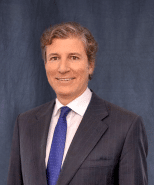






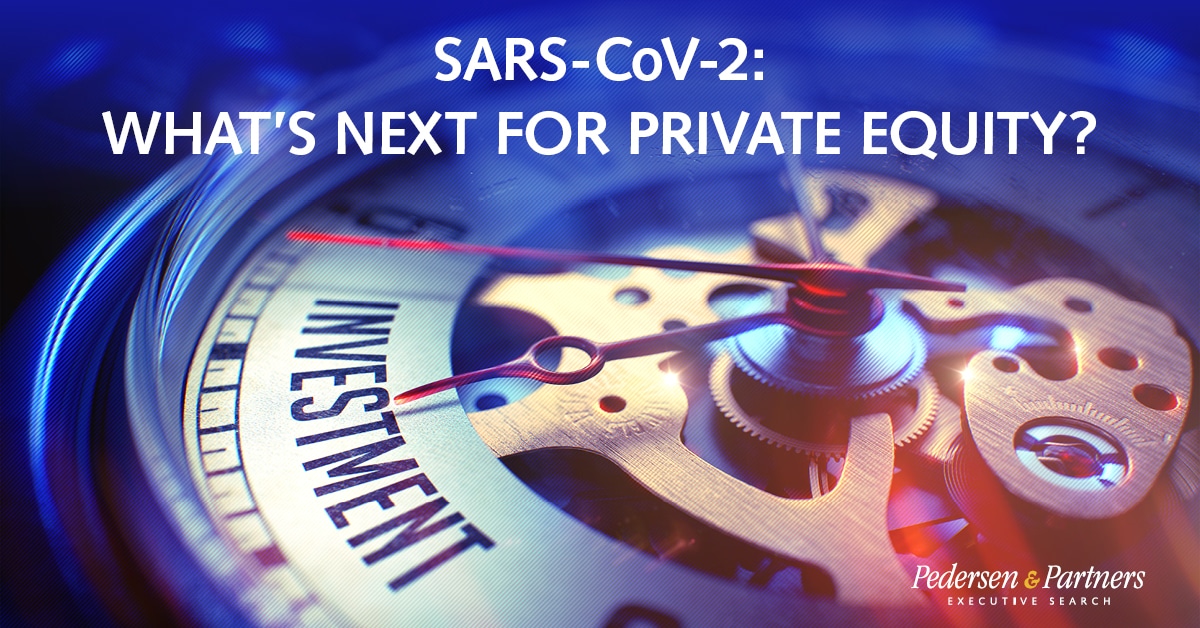
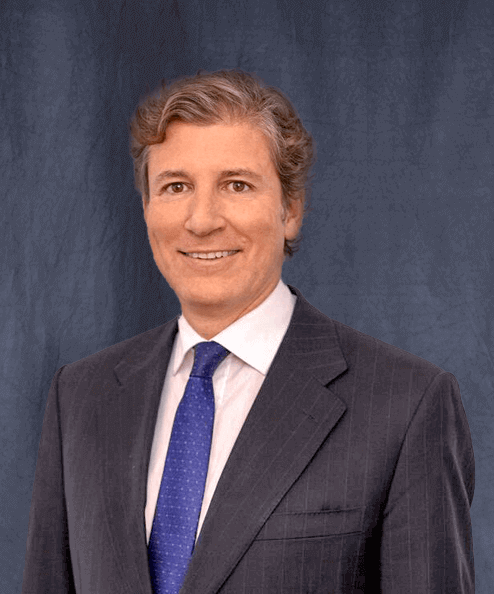
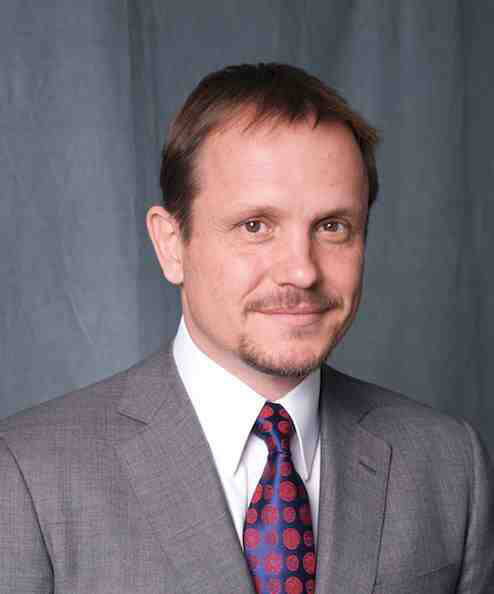

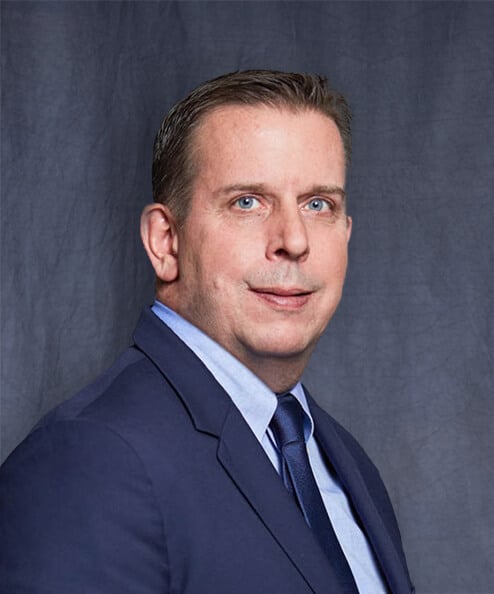 “The global Private Equity industry has registered record-high results over the last few years, and our clients have consistently turned to our expert industry consultants for help in aligning their strategic investor plans with their leadership capabilities. Alvaro has led our global team into partnerships that help our clients to plan investment strategies which include a built-in C-level talent component to ensure the best match at every stage of the deal, from appointments and assessments to succession strategies and value creation plans. Alvaro applies his core values-driven advisory and search expertise across the lifecycle of an investment, and his thorough understanding of the industry processes and talent requirements transcends geographical boundaries while factoring in local sensitivities. I am certain that Alvaro’s appointment will be a stepping stone for the entire Practice Group’s accelerated growth,” stated
“The global Private Equity industry has registered record-high results over the last few years, and our clients have consistently turned to our expert industry consultants for help in aligning their strategic investor plans with their leadership capabilities. Alvaro has led our global team into partnerships that help our clients to plan investment strategies which include a built-in C-level talent component to ensure the best match at every stage of the deal, from appointments and assessments to succession strategies and value creation plans. Alvaro applies his core values-driven advisory and search expertise across the lifecycle of an investment, and his thorough understanding of the industry processes and talent requirements transcends geographical boundaries while factoring in local sensitivities. I am certain that Alvaro’s appointment will be a stepping stone for the entire Practice Group’s accelerated growth,” stated 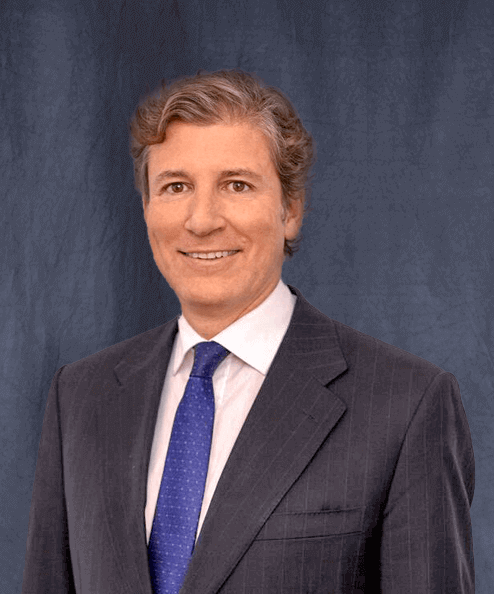 “As with many other industries, Private Equity has been greatly impacted by the abundance of opportunities brought on by the era of digitalisation, among other global factors affecting its course. At Pedersen & Partners we are uniquely positioned to help clients achieve their transformative goals in unpredictable and rapidly changing operating environments. Our team of consultants encompasses a wide array of critical credentials that are essential to guiding and advising them on vital leadership aspects necessary to accomplish their business aspirations. I’m excited to take on full responsibility for the Private Equity Practice Group, and to continue strengthening our position in this complex market in the years to come,” added
“As with many other industries, Private Equity has been greatly impacted by the abundance of opportunities brought on by the era of digitalisation, among other global factors affecting its course. At Pedersen & Partners we are uniquely positioned to help clients achieve their transformative goals in unpredictable and rapidly changing operating environments. Our team of consultants encompasses a wide array of critical credentials that are essential to guiding and advising them on vital leadership aspects necessary to accomplish their business aspirations. I’m excited to take on full responsibility for the Private Equity Practice Group, and to continue strengthening our position in this complex market in the years to come,” added 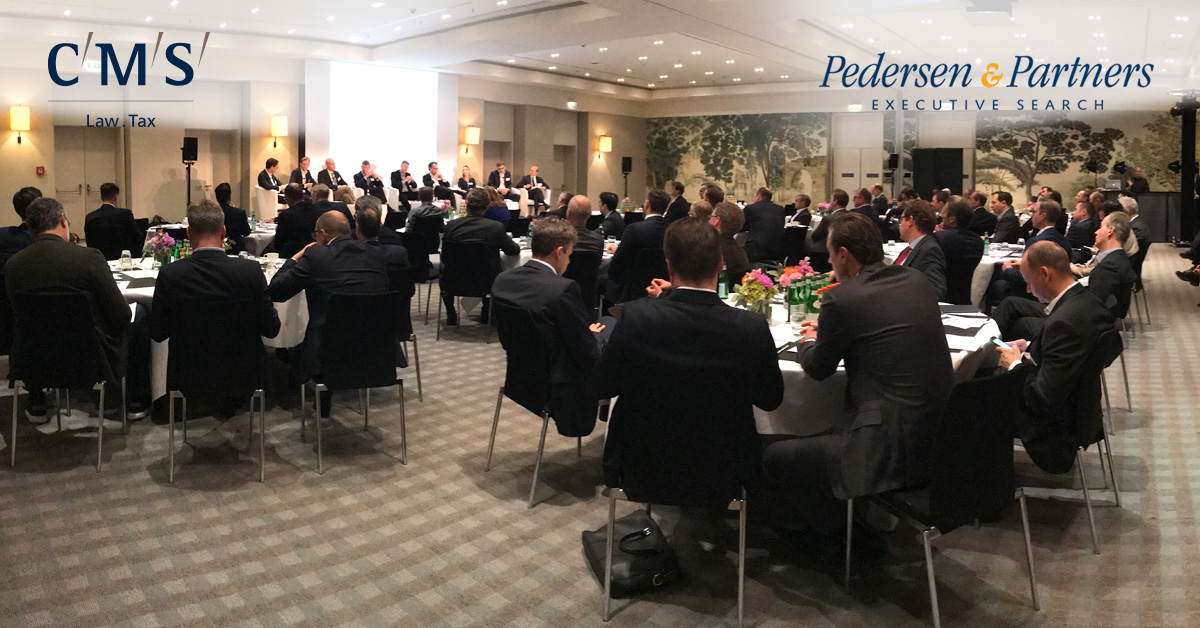 The panel was moderated by CMS Partner and PE practice lead Tobias Schneider and
The panel was moderated by CMS Partner and PE practice lead Tobias Schneider and 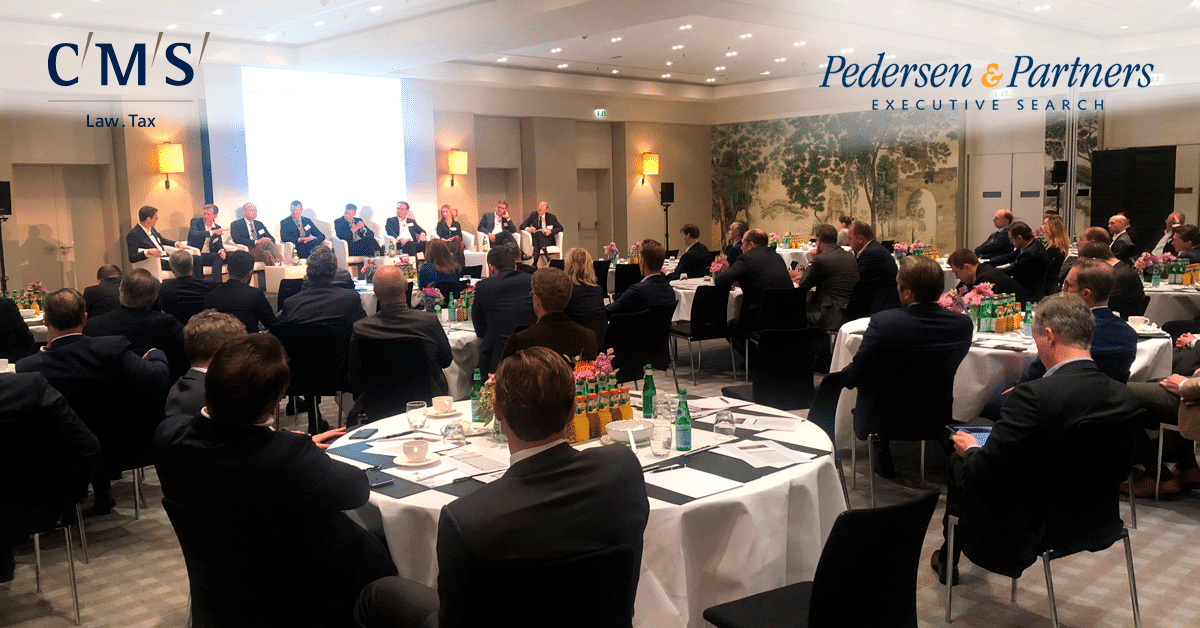 The main conclusion of the participants is that the race for the best deals is set to continue, as Private Equity continues to consolidate its position as an attractive asset class. Several investors have treated 2019 as a year of fundraising and divestment such as Permira’s IPO of Teamviewer.
The main conclusion of the participants is that the race for the best deals is set to continue, as Private Equity continues to consolidate its position as an attractive asset class. Several investors have treated 2019 as a year of fundraising and divestment such as Permira’s IPO of Teamviewer. 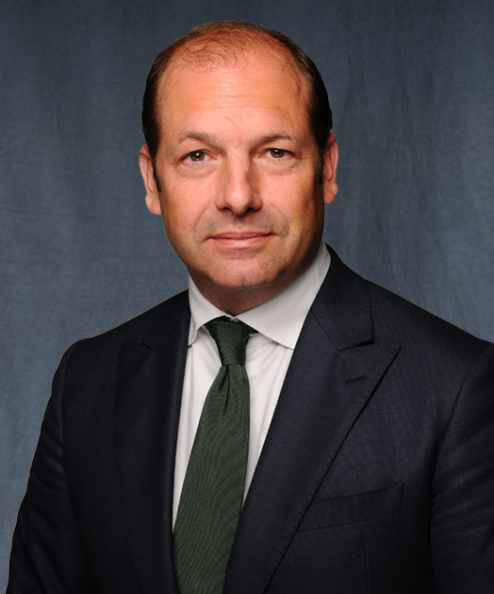 Guido Bormann
Guido Bormann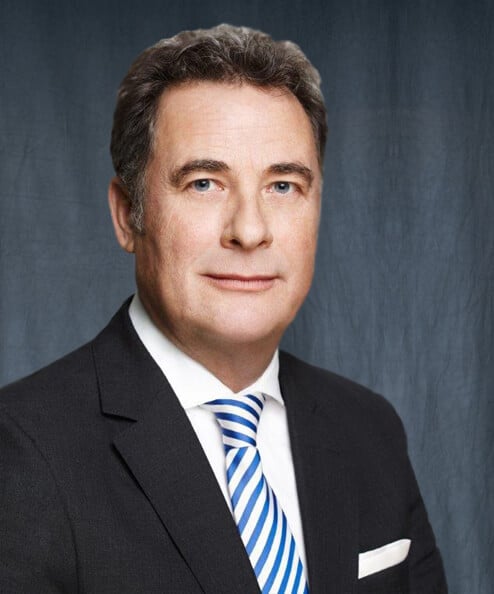 Andreas Weik
Andreas Weik